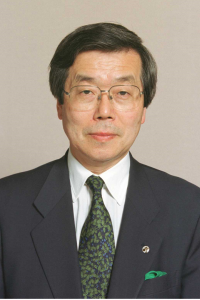The Washington Consensus vs. The Beijing Consensus
The year 2015 marks the seventieth anniversary of the end of World War Two, and it will most likely be a year concerning the governance of the world economy. While the U.S.-led Bretton Woods system, centered around the International Monetary Fund and the World Bank, has long driven the operation and ideals of finance and economy in the post-war world, China and other countries who seek to expand their influence are attempting to revise the means for governing the global economy by establishing systems of their own. One particularly noteworthy development is the Asian Infrastructure Investment Bank (AIIB) proposed by China that is expected to be established during 2015.

KOJIMA Akira, Chairman of World Trade Center Tokyo, Inc., Member, Board of Trustees of the National Graduate Institute for Policy Studies
China proposed the concept for this bank in October 2013. By October 2014, it had signed a memorandum of understanding (MOU) on establishing the bank with twenty nations interested in the concept, with Indonesia announcing its participation the following month. A total of twenty-two nations, including China and ten member states of ASEAN (Association of South-East Asian Nations) are currently in the process of drafting the AIIB establishment agreement. In addition to these twenty-two nations, countries that sign an MOU by the end of March 2015 will also be able to participate in the negotiations and be counted as “founding members.”
Japan, having long led the Asian Development Bank, is left in an awkward position on what stance to take concerning this new bank. The MOU is not a legally binding document, but the establishment agreement is. If Japan chooses not to participate in the negotiations, it will have no say in deciding the agreement terms. Thus, even if it decides to ultimately join the agreement, it would have to accept the terms unconditionally.
The purpose of AIIB is to build a vast infrastructure across Asia that is said to require 8.3 trillion dollars over the next twenty years (as estimated by the Asian Development Bank). It also aims to support the cooperation and economic development of Asian nations through the construction of this infrastructure. The fact that China, which has risen to become a major economic power, is out to play an international role is a development that we should rightly welcome.
However, the vision mapped out by China presents several challenges and problems. The United States has expressed concern that China will use the infrastructure investments to take advantage of other Asian nations and secure its sphere of influence. While the IMF and the World Bank have their headquarters in Washington D.C. and are run under the direction of the U.S. government, AIIB would likely set its headquarters in Beijing and be led by a Chinese president. The fundamental ideals of the Bretton Woods system are a free market economy and democracy (the “Washington Consensus”). In contrast, the AIIB would be an authoritarian market economy that does not call for democracy (the “Beijing Consensus”).
The IMF and the World Bank do not sufficiently recognize the emergence of rising economies. Currently the United States maintains veto rights, but this fact is now being criticized and has become the subject of discussions on reform. However, these reforms are making very little progress. The IMF decided in 2010 to double its capital, and shifted two of its twenty-four directorial posts to a developing nation and a rising economy, a decision which the U.S. Congress continues to oppose.
There are also problems with the AIIB. China, the largest investor, commands 50% of the voting rights, and has failed to clearly present its ideals. The funding policies and conditions of the new bank, including those concerning the environment, are not clear, and the procurement rules for constructing the infrastructure remain vague as well.
It is only a matter of time until this new bank is established. There are roles which Japan can play to help push forward essential reforms for existing institutions, such as the IMF and the World Bank. Instead of fostering opposition, Japan can also help establish a cooperative relationship and partnership between these institutions and the new bank. To fulfill these roles, I believe Japan needs to abandon its vague stance and clearly voice its views by participating in the negotiations on the establishment agreement.
Translated from an original article in Japanese written for Discuss Japan. [January 2015]



